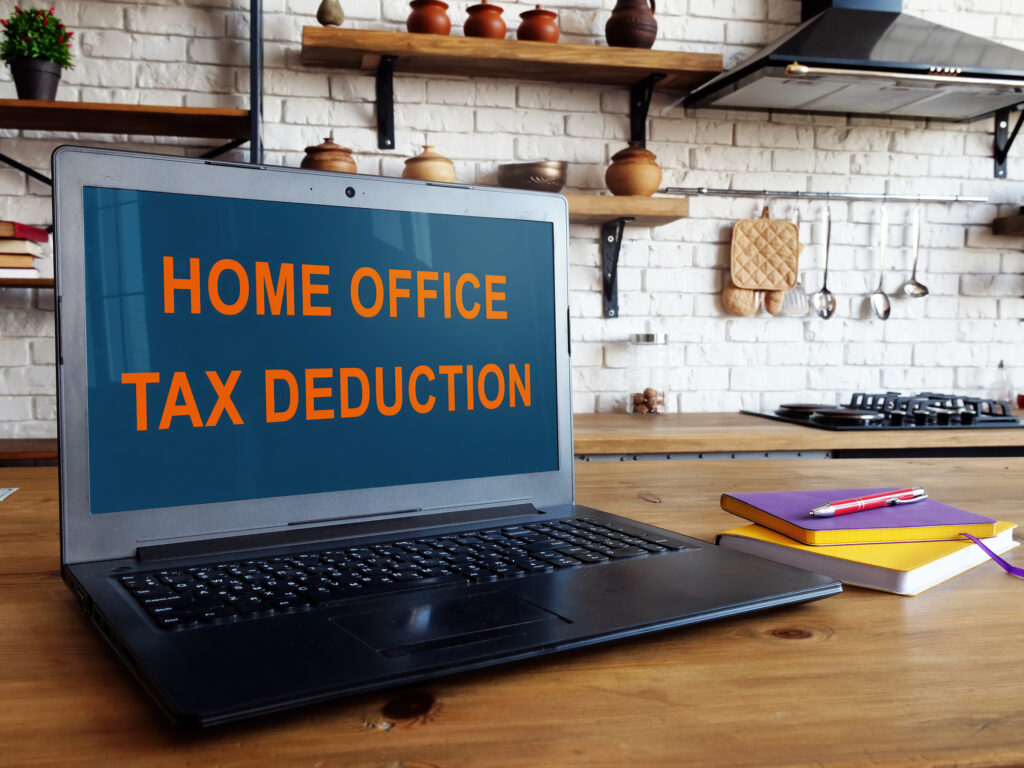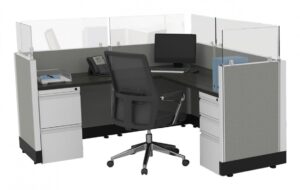Things to Know About Home Office Tax Deductions

There are several benefits to working from home. You can work at something you like while making a respectable wage, and you won’t have to travel to work. As if that weren’t enough, the IRS now allows you to claim your home office expenditures as a deduction on your tax return.
But this is where it gets exciting. Even while one in five individuals work from home, just 3.4 million people claim home office deductions (approximately 26 million Americans). One argument is that people are reluctant to claim deductions out of concern about an Internal Revenue Service audit or they don’t know how to do the calculations. But a 1099 tax calculator from FlyFin can always help with this task .
It’s challenging to comprehend taxes. Therefore, before claiming a home office deduction, it’s always a good idea to speak with a trained tax expert. However, claiming your home office as a deduction is simpler than it might seem, and it won’t trigger an audit. You may reduce your tax liability by taking advantage of the home office deduction both this year and in the future.
If your home office qualifies for a simplified home office deduction, you could potentially write off a portion of some expenses that a typical homeowner cannot.
If you work from home and meet certain IRS requirements, the home office deduction lets you write off a lot of regular household expenses as business expenses. Regrettably, there is a lot of misunderstanding among taxpayers regarding this deduction. Take into account the following typical myths about the home office deduction to discover the reality about your eligibility and how to make a claim. Plus, be aware you might need 1099 forms, like the 1099-K, when running a business from your home.
What Exactly Is a “Home Office”?
Let’s begin by defining “home office.” It’s your home office, not a coffee shop, a library, or even a coworking place. Your office in your home is an extra space to your living area. But it could be elsewhere.
A home office can be a spare room in your home, a garage, a shed in your backyard, a barn, or any other free-standing building on your property. If working from a treehouse doesn’t appeal to you, that’s fine. A recess under your stairs or a corner of your dining room may serve as your home office. If it fits the IRS definition of a “home office,” you can write it off on your taxes.
More about the home office tax deduction
Working remotely, whether as an employee or as an employer, is becoming more and more common. By eliminating the expense of traditional office space, businesses and independent contractors may save money. The potential to avail the home office tax deduction is a substantial additional benefit.
Working at home during COVID-19 may have greatly reduced our exposure to the virus. Our phone and internet costs have significantly increased. Many businesses have started to pay their staff for a portion of these costs.
The popularity of the home office tax deduction has increased in the US as a result of a significant movement toward remote employment. Many consumers are confused if they are eligible for specific write-offs with their new pandemic WFH systems. Most individuals who packed up their desk plants and bobbleheads in March won’t be able to claim the deduction, though, unless they are or have just become self-employed.
Making the Most of Tax Deductions for Your Home Office
To begin subtracting what you owe, you must first determine how much of your house serves as office space. Think about whether saving time by utilizing the standard deduction is worth the additional arithmetic necessary to obtain the additional deductions. Utilize your deductions to the fullest extent possible to lower your business taxes and offer yourself an edge since you have earned it.
What exactly is a home office?
You become qualified to file for the expenditure deduction for the commercial or official use of your house if you utilize any portion of it for work. Both homeowners and renters are eligible for this home office deduction, which is also valid for all kinds of residences. You are allowed to routinely set aside a space in your house just for commercial purposes. You can claim a home office deduction for an additional room that you have been utilizing to conduct your firm, for instance. Ensure that area has been used for office work.
Whether a cost is tax deductible:
When determining whether an expense is deductible for tax purposes, these general rules apply.
- Just to my home office. The whole cost of an item that is used just for the home office is written off as a “direct” home office expense. A direct expense may be the price of window coverings installed just in your home office to provide clients privacy, for example.
- The entire house. Only a fraction of a home office expense that covers the entire house is deductible since it is an “indirect” home office expense. Heating, cooling, rent, and mortgage payments are examples of indirect costs.
- The space that is unrelated to commerce. None of the expense is deductible if it pertains to the non-business area of the residence. An example of an expense that’s non deductible is redoing the main bathroom to accommodate a private sauna.
Different Deductible Home Office Expenses
The two types of deductible expenses for a home office are direct and indirect costs. Repairs and painting are examples of direct home office costs that are totally deductible and relate to the actual workspace. Only a portion of indirect home office expenses that are connected to the office’s dwelling are tax-deductible. Utility costs and mortgage interest are examples of not direct expenses. The cost of painting a room other than your office or maintaining the lawn is not deductible as a home expense because it is unrelated to your home office.
You may only deduct expenses for the period you used the office if you solely perform business for a part of the year. Although there is no limit to the number of qualified expenses, these are the main groups where you will find the majority of your deductions. Consider employing a qualified accountant to help you evaluate your industry and identify lower expenditures that you might be able to write off.
There are many other ways to save on taxes when taking deductions. Freelancers and self-employed individuals may be able to claim the food and entertainment tax deduction, the health insurance premiums deduction or even the business travel tax deduction.








